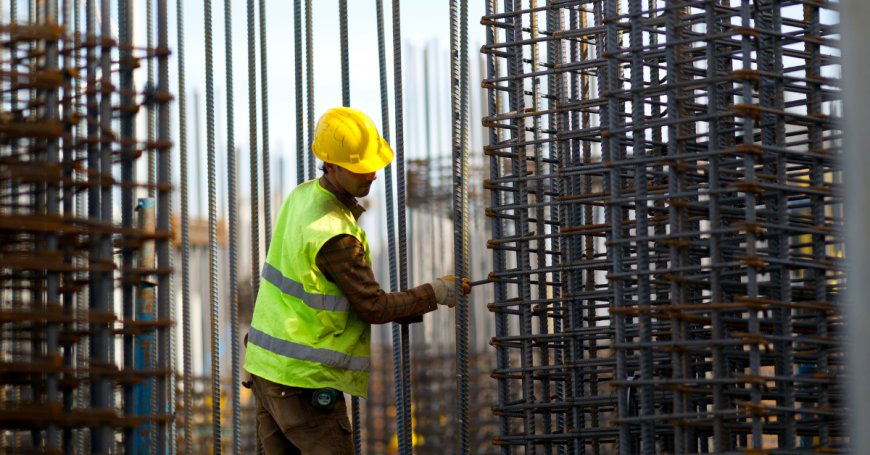Sariya Ka Rate Today: Factors Affecting Steel Prices and Their Impact on Construction
The price of steel, especially TMT bars (locally known as sariya), is a crucial consideration for builders, contractors, and developers.

The price of steel, especially TMT bars (locally known as sariya), is a crucial consideration for builders, contractors, and developers. Sariya is an essential material in the construction of buildings, roads, bridges, and other infrastructure. The fluctuating cost of TMT bars can significantly impact construction budgets, timelines, and overall project costs. In this article, we will explore the (TMT bars) sariya ka rate today and the factors influencing steel prices, and how these fluctuations affect construction projects.
Sariya Ka Rate Today
The price of sariya today varies depending on multiple factors, including the market demand, the cost of raw materials, and the region where it is purchased. As of today, the rate for TMT bars in India typically ranges from ₹50,000 to ₹75,000 per ton, with some fluctuations based on the brand, quality, and location.
To get the most accurate pricing, it's essential to contact suppliers like SteelonCall, who offer real-time pricing based on factory rates. By buying directly from suppliers, contractors can benefit from competitive pricing and minimize middleman costs.
Factors Affecting Sariya (TMT Bar) Prices
Raw Material Costs
The price of raw materials used in the production of steel, such as iron ore, coal, and scrap metal, directly impacts the cost of TMT bars. Any change in the availability or price of these raw materials will influence the overall cost of steel production. For instance, an increase in iron ore prices will result in higher production costs, leading to a rise in sariya rates.
Demand and Supply Dynamics
During periods of high demand—such as when construction activities are booming or when large infrastructure projects are underway—steel prices tend to rise. Conversely, when demand decreases, prices may stabilize or even drop.
Factors like seasonal demand fluctuations also play a role. For example, in the construction industry, demand for steel tends to rise during the summer months when construction activities are at their peak.
Global Steel Market Trends
Global market trends have a direct impact on the domestic steel market. India imports a significant amount of steel from countries like China, Japan, and South Korea. Any changes in global supply chains, such as trade tariffs, shipping disruptions, or global production cuts, can cause steel prices to increase. For example, if global steel production is down due to economic factors, domestic prices in India may rise due to reduced availability of steel.
Government Policies and Taxes
Government policies, including export-import duties, taxes, and subsidies, also influence the price of TMT bars. Any changes in the duties on imported steel or subsidies for domestic production can affect the supply and demand dynamics. Additionally, environmental regulations and carbon taxes aimed at reducing emissions in steel manufacturing can contribute to price hikes, as manufacturers may pass on the costs of compliance to consumers.
Transportation Costs
Transportation plays a significant role in the final cost of steel products. Increases in fuel prices or transportation costs due to logistical disruptions can result in higher prices for TMT bars. Steel manufacturers and suppliers often pass on the additional transportation costs to buyers, further affecting sariya rates.
Steel Production Capacity and Technology
The level of steel production and the technology used in steel mills also contribute to the pricing. Modern steel mills that use advanced technologies tend to produce steel more efficiently, which can result in lower production costs and, consequently, lower prices for buyers. On the other hand, if the production capacity is limited or inefficient, it can result in higher prices due to supply constraints.
Exchange Rates
Steel is a globally traded commodity, and the exchange rate between the Indian Rupee (INR) and other currencies can affect the cost of imported steel. If the INR depreciates against major currencies like the US Dollar, the cost of importing steel increases, which can lead to a rise in domestic steel prices.
Inflation
Inflation affects the general cost of living, and the construction industry is no exception. As inflation rises, the cost of raw materials, labor, and production processes also increases, thereby pushing up the price of steel and construction materials.
Impact of Sariya Price Fluctuations on Construction
Increased Project Costs
When the price of sariya rises, it directly increases the cost of construction projects. Contractors may face challenges in maintaining their original budget and may have to adjust the overall cost of the project or negotiate with clients.
Project Delays
As steel prices rise, construction projects may be delayed due to the increased cost of materials. Contractors may face challenges in sourcing enough material at the required price, leading to delays in procurement and project completion.
Impact on Profit Margins
For construction companies working on fixed-price contracts, fluctuating steel prices can eat into profit margins. Builders and contractors may find themselves bearing the brunt of rising prices, especially if they cannot pass on the increased costs to clients due to contractual obligations.
Conclusion
The price of sariya (TMT bars) is influenced by a variety of factors, including raw material costs, supply and demand, global market trends, government policies, and inflation. Builders and contractors need to stay informed about these factors to manage construction costs effectively.
If you are looking for best quality steel online, please visit our website : www.steeloncall.com or you can contact us through our toll-free number: 18008332929

 shanthisinha
shanthisinha